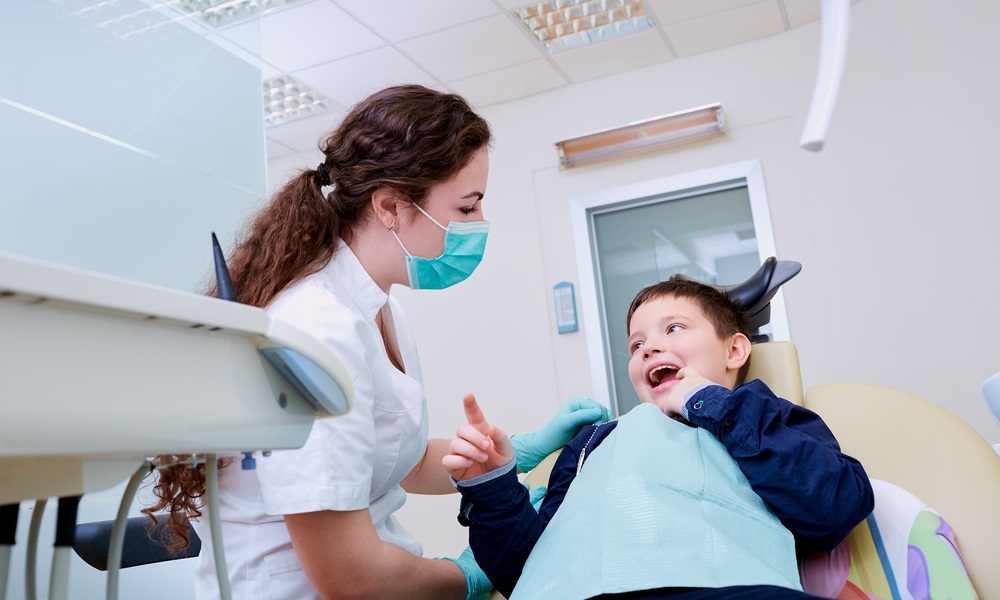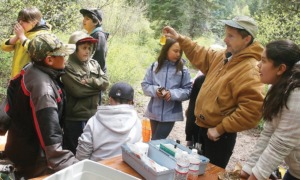By Dr. Tyeese Gaines
Dentists recommend that children have their first dental exam either when the first tooth emerges or before their first birthday, then, every six months after that.
 Those early-in-life visits help children get accustomed to going to the dentist, without fear.
Those early-in-life visits help children get accustomed to going to the dentist, without fear.
For some parents of children with disabilities, delaying those visits isn’t intentional. It’s just less of a priority, given the difficulty many of them face in finding dentists trained to treat those who are disabled.
“There were so many other things competing for our time — the eye doctor, therapy appointments,” said Aurélie Brown, who spent years trying to find a dentist who didn’t cause high anxiety in her 8-year-old, who has Cohen syndrome.
[Related: Parents struggle to find specialized dental care for children with disabilities]
“It didn’t even feel like it was worth trying again for a long time, until her behavior slowly improved,” that mother added, regarding the years-long gap between her daughter Suzie Brown’s fright-filled first dental appointment, when was a 2-year-old, and the one where she finally made it through just fine.
Because of her genetic disorder, Suzie’s mouth is unusually small and her airways unusually narrow. She cannot spit and doesn’t know how to brush her teeth. After a prolonged search, her parents found a dentist who understood that and would allow both of them into the exam room, where one parent asked questions and the other kept Suzie calm.
Here’s some additional advice for finding dental care for youth with disabilities:
- Ask the pediatrician for a referral to a dentist who treats children with special needs.
- Ask for recommendations from members of the Parent to Parent USA nationwide network or other support groups.
- To help identify which dental offices are not equipped to handle disabled children, call ahead and explain the nature of a child’s disabilities and abilities.
- Emergency rooms of children’s hospitals are more likely to have dentists specializing in caring for disabled youth, making those facilities a good starting point for new parents or ones who are new to their area. (Because dental procedures on disabled children sometimes require that they be sedated to keep them calm, oral health treatment has long been done in hospital operating rooms.)
- Try game apps such as the BrushUp, aimed at engaging children who have the ability to brush their teeth.
- Peruse the American Academy of Pediatric Dentistry’s resources and answers to frequently asked questions.
***
Physician and journalist Dr. Tyeese Gaines is a content producer-commentator for Black America’s Health. She has reported for MSNBC and NBCBLK, and was medical editor for The Grio.
































